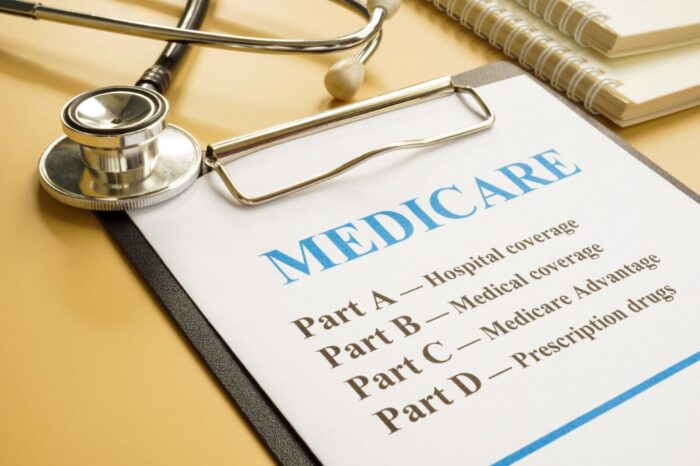
When you turn 65, you will be immediately able to enroll in Medicare insurance. Medicare Parts A & B or medicare advantage (also known as Part C) are the two most prominent choices. Choosing the right medicare plan is essential. You need to consider your needs while you look for coverage and prices of each plan and see what fits best.
However, medicare advantage plans aren’t just for senior citizens. People with certain disabilities, including end-stage renal disease, can apply for Medicare advantage, even though they are under 65. In the article below you can see what the conditions to apply for Medicare Advantage are for people who are younger than 65.
Eligibility with Disability

People with certain disabilities might be able to apply for both Medicare Part A and Part B and Medicare Advantage. In order to become eligible and receive insurance, you must have been unable to work for 365 days or more.
The other way to receive it is to have been eligible for Social Security or Railroad Retirement Board benefits for 2 years or longer.
People younger than 65 who are eligible for Medicare must have a disability that prevents them from working. The condition needs to be serious to this degree. Even if it is a serious condition and you are unable to go to work, you may not receive healthcare. That’s because the disability needs to be on the Social Security Administration’s list.
Some examples that would allow you to apply for Medicare Advantage plan include diseases such as chronic respiratory disorders like cystic fibrosis, chronic liver disease, hearing loss or inflammatory bowel disease.
Medicare Advantage Eligibility for End-Stage Renal Disease (ESRD)

End-Stage Renal Disease is a kidney disease that is quite severe. People who suffer from ESRD either need a transplant or dialysis to get healthy. ESRD patients cannot survive for long unless they receive one of these treatments. Therefore, it is necessary to act quickly to save their lives.
When it comes to health insurance choices for ESRD patients, they can receive Original Medicare, but in most cases, they will be denied Medicare Advantage. There are some exceptions and you can receive the Advantage if you opt either for certain plans, or if you have gone through some procedures in the past. But, let’s analyze this in more detail below:
- Special Needs Plan – One of Part C plans is called Special Needs Plan or SNP. This plan aims at groups of people who have specific disabilities and suffer from diseases such as dementia, autoimmune disease or diabetes. However, some SNPs cover ESRDs while some don’t and this is something you will need to check with the insurance provider. It is possible to find plans for your ESRD but it may take you a while and time is something you don’t have. You can always give up on the SNP and go with the original insurance, but it is worth a shot.
- You develop ESRD when you already have Medicare Advantage – There is always a possibility to develop End-Stage Renal Disease after you purchase your plan. Nobody can tell when this can happen. If you already have Medicare Advantage and then you get ESRD, there is a possibility to stay in this plan. Make sure to check this with the insurance provider to avoid any potential issues that may ensue.
- You had a successful kidney transplant but you are still eligible for Medicare – Medicare coverage ends 36 months after a successful transplant.
- You are enrolled in Medicare with the company that provides Medicare Advantage too – If you receive your employer’s health benefits, you may be able to switch between the plans and choose Advantage if you already had a Medicare plan with the same provider.
These are the exceptions to the rule and they are very rare

Other than one of the exceptions mentioned above, you must meet the other criteria too. All the other Medicare eligibility requirements still count, which is something to keep in mind.
People who are younger than 65 and have ESRD will be able to enroll in Medicare Advantage under the following conditions:
- When you undergo the fourth month of dialysis care in a dialysis facility
- If you participate in a home dialysis program.
The coverage that you may receive with the Medicare Advantage Plan ends either 1 year after you have stopped receiving treatment or 36 months after your kidney transplant.
Sometimes, Medicare Advantage may not be the best solution for ESRD patients. If you are under 65 and you have ESRD or any other condition, you need to choose your plan carefully. For eligible Medicare recipients, you can learn more about Medicare Advantage and see which plan is best for you.








